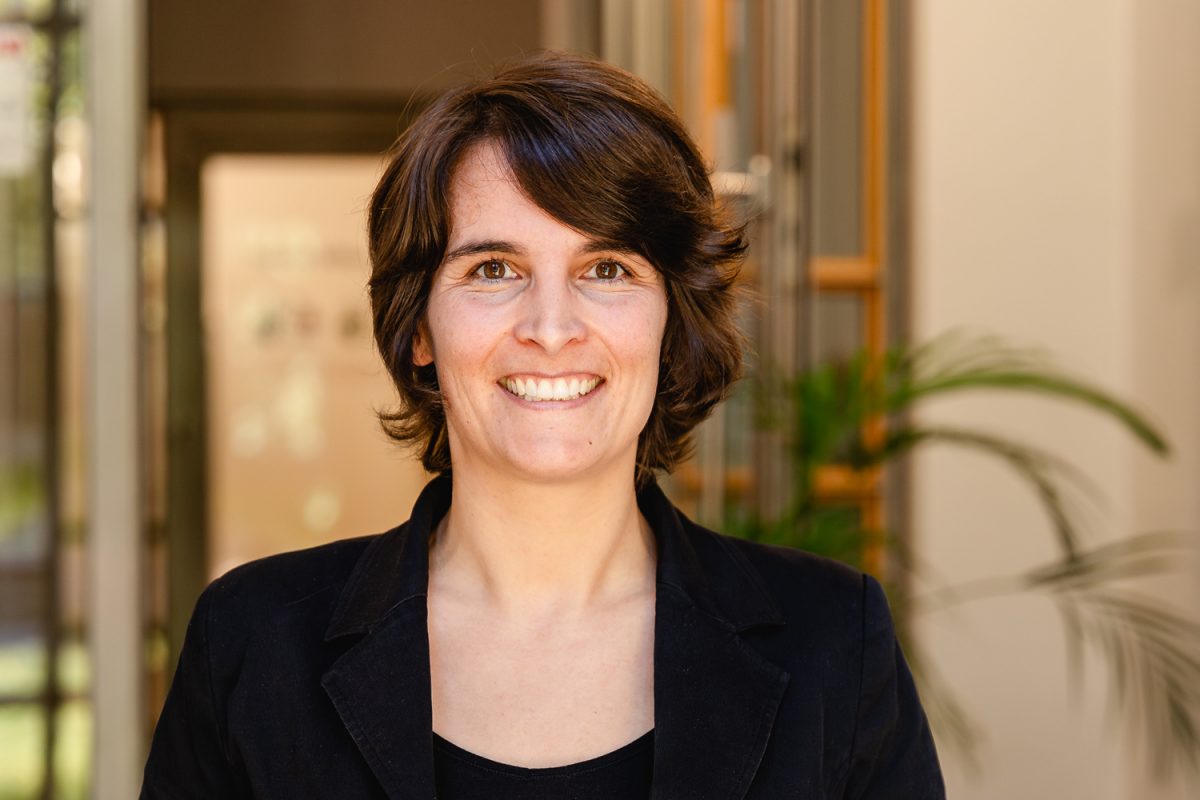From Germany to New Zealand and back Clinical Psychologist and Clinical Educator Carolin Ritter on her work in two countries
In 2007, TU psychology graduate Carolin Ritter immigrated to New Zealand. She is a registered Clinical Psychologist and works as a Clinical Educator in the clinical psychology training programme at the University of Canterbury in Christchurch. This year, she is spending some time in Germany, where she is covering a parental leave position at TU Braunschweig’s Institute of Psychology, training future Clinical Psychologists.
Is your work different in New Zealand and Germany? Are there differences in the psychology curriculum?
Carolin Ritter: In both countries, I work mainly with postgraduate students who train to become registered Clinical Psychologists. These courses are typically limited to a small number of students, who already need to have a bachelor’s degree in psychology, at the very minimum. In addition to clinical psychology teaching, students also gain their first practical experience with clients, guided by experienced Clinical Psychologists (Clinical Educators).
Although there are small differences in working life, the Clinical Educator role in Germany and New Zealand is surprisingly similar. In both countries, we cover similar topics and face similar issues in our clinical psychology teaching and in the supervision of students’ clinical psychology practice.
There are more differences in the undergraduate psychology degrees. For example, at public universities in Germany, admission to a psychology bachelor’s degree is heavily restricted. In New Zealand, anyone eligible to enrol for university study can enrol in psychology courses, which can lead to enrolments of over 1,000 students in first-year psychology courses. Certain content that is part of the German curriculum for example, the requirement that psychology undergraduate students complete placements during their study – is not possible with this number of students. Instead, it takes creative solutions to teach students relevant skills in other ways.

Clinical Psychologist Carolin Ritter gains valuable experience through her work in Germany and New Zealand. Photo: Henrike Hoy/TU Braunschweig
Can you give an example?
Carolin Ritter: At the University of Canterbury, we have recently developed a new undergraduate course that draws on community projects to give students the opportunity to apply their psychological knowledge and skills to real-world questions or problems without leaving the campus. These projects are presented to students by community/industry partners. Authentic interaction between students and the working world is facilitated, as students interact with the community partners at the beginning of the course and again at the end of the course, when they present their solutions during a mini conference. During this course, students are also supported to acquire general work-readiness skills, such as teamwork, leadership, communication, and presentation skills. This course can easily be upscaled and accommodate several hundred students.
What role does internationalisation play at the University of Canterbury?
Carolin Ritter: Internationalisation is very tangible in my daily work in New Zealand, partly because many of my colleagues are from overseas. The different perspectives are greatly valued and enrich our everyday working life. My sense is that New Zealand’s rather remote geographical location creates an even stronger focus on internationalisation. One of the University of Canterbury’s strategic goals is “Internationalisation – Locally Engaged, Globally Connected”. Alongside the global connection sits the local engagement, particularly New Zealand’s cultural distinctiveness and the role of Māori as Indigenous people of New Zealand, as well as New Zealand’s special responsibilities to Pacific nations.
Internationalisation in New Zealand, just like here at TU Braunschweig, also means expanding the nationalities and cultures represented in the student body, enhancing the internationalisation of the curriculum and the student experience, and strengthening international cooperation and exchange in teaching and research. For example, the University of Canterbury offers the prestigious Erskine Programme; teaching-related fellowships and grants that promotes international exchange in both directions – up to 70 international lecturers are invited to teach at the University of Canterbury and dozens of lecturers from the University of Canterbury gain experience abroad each year. In our School of Psychology, Speech and Hearing, this exchange is utilised frequently and greatly appreciated by all participants.
What conclusions do you draw from your work experience in both countries?
Carolin Ritter: To me, this year has particularly highlighted the value of international exchange. At the beginning of the year, I was lucky to serve as the academic lead in the development of a new psychology bachelor’s degree at the University of Canterbury. In the development process, I also consulted my colleagues from the TU Braunschweig, who shared their experience with the recently restructured psychology degrees in Germany. Although the psychology bachelor’s degrees in both countries are different, I found this exchange very valuable and appreciated adding the perspective of a non-English-speaking country to our degree development. In the second half of this year, I have been part of the team of Clinical Educators at the TU Braunschweig who are training the first cohort of students in the new Clinical Psychology Master’s degree. I have enjoyed offering my experience with clinical education in New Zealand to the process of establishing these new courses here in Braunschweig.
In response to the question of what the countries could learn from each other, it would be wonderful if clinical psychology services in New Zealand could be free of charge, as they are in Germany, where they are typically covered by health insurances. In New Zealand, many people have to pay for clinical psychology assessments and therapy themselves, which creates a major barrier to accessing this support. In exchange, Germany could take some inspiration from New Zealand’s community-mindedness and the value that is placed on connecting with nature. Together with a more balanced perspective on achievement and work, it seems to support population wellbeing overall.
